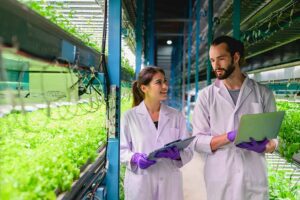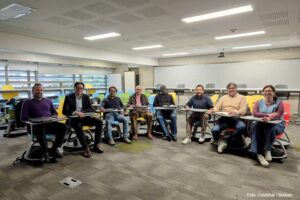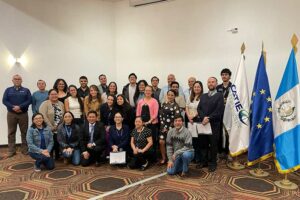Director General of CATIE, Luis Pocasangre, visited the ESCALAR project in villages of Guatemala
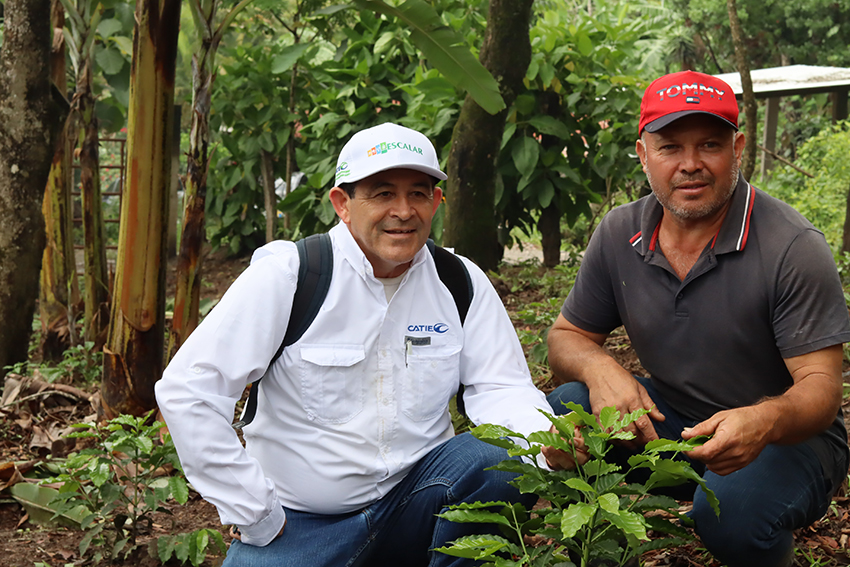
- Cooperatives and farming families in Esquipulas, Guatemala, are working with the Milenio and Centroamericano coffee hybrids produced by CATIE and rainwater harvesting.
The Director General of CATIE (Tropical Agricultural Research and Higher Education Center), Luis Pocasangre, visited the village of Cafetales, in Esquipulas, Guatemala, to meet with farming families working with the ESCALAR project on agricultural innovation for climate adaptation.
The ESCALAR project: Scaling Climate Change Adaptation Solutions for Resilience and Migration Reduction in the Central American Dry Corridor, is led by CATIE with the support of Swedish Cooperation, in the Trifinio region, covering 17 municipalities in El Salvador, Guatemala, and Honduras.
Part of its actions includes the renovation of coffee plantations with hybrid coffee plants Milenio and Centroamericano, produced by CATIE, which have been shown to be tolerant to rust and drought.
Pocasangre visited the nursery of the Velásquez family, who work with the rooting of coffee hybrid cuttings produced by the CATIE Forest Seed Bank, which are being implemented in the Trifinio region with the ESCALAR project.
The Director General highlighted the benefits of the plants and the years of work in Central America with CATIE hybrids, which are highly productive, resistant to coffee rust, and have excellent cup quality.
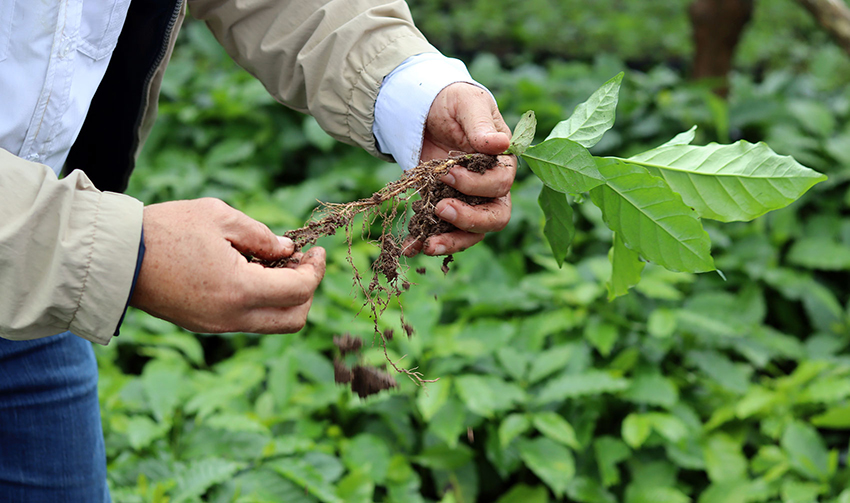
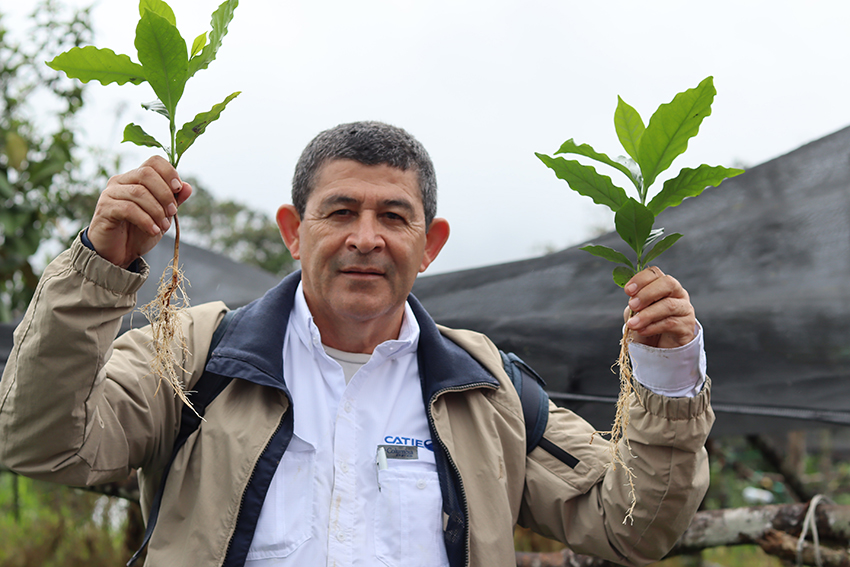
The field tour included a visit to the learning farm “El Paraíso,” owned by Edy Herrera, in the village of Carrizal in Esquipulas, Guatemala.
The visit aimed to learn about the yield percentage of Milenio and Centroamericano hybrids in the renovation of the coffee plantation as a climate adaptation measure.
“The plants have withstood weather events such as heavy rains and extreme droughts in the summer,” said Herrera.
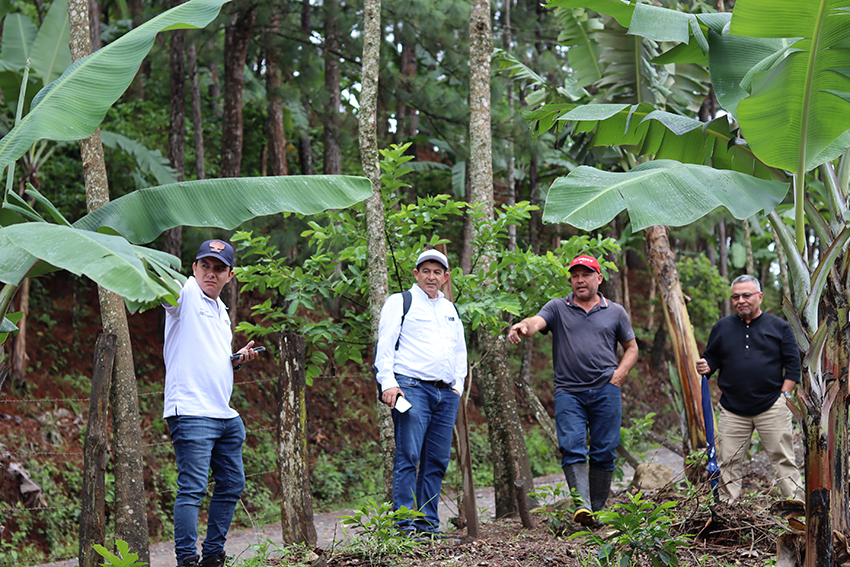
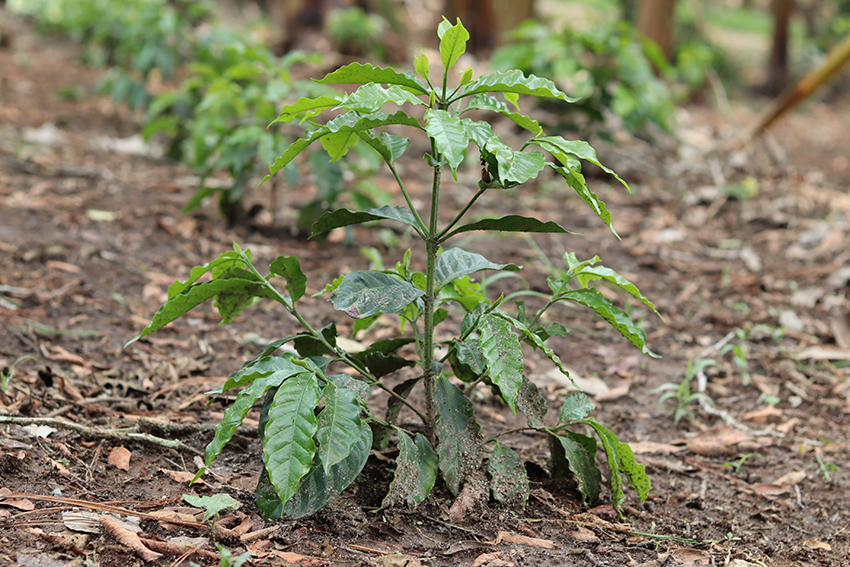
This learning farm also features agricultural innovation for climate adaptation: rainwater harvesting with roofs and storage in Zamorano-type tanks.
Herrera highlighted the importance of this technology for water supply for domestic use and irrigation on his property.
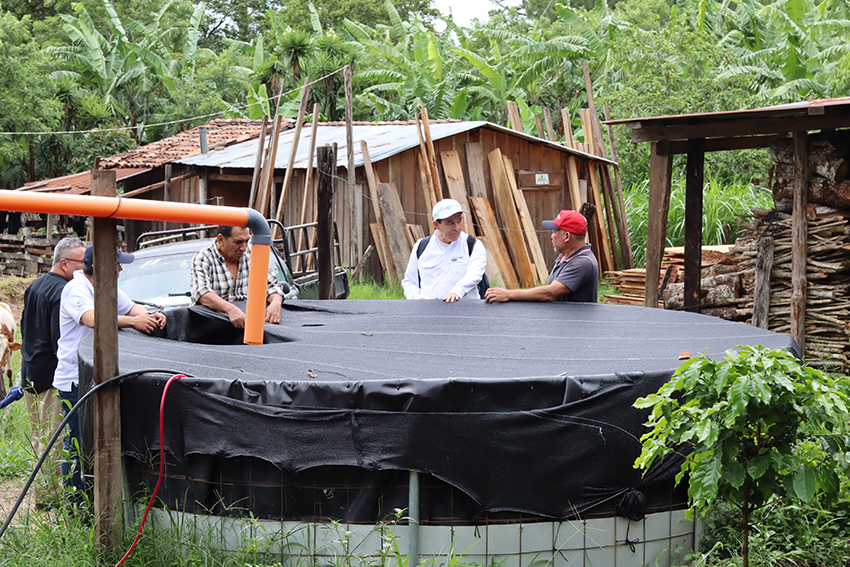
The field tour concluded with a visit to the “Cafetales” Integral Agricultural Cooperative, R. L., where he learned about the facilities and the work process of CAINCAFE.
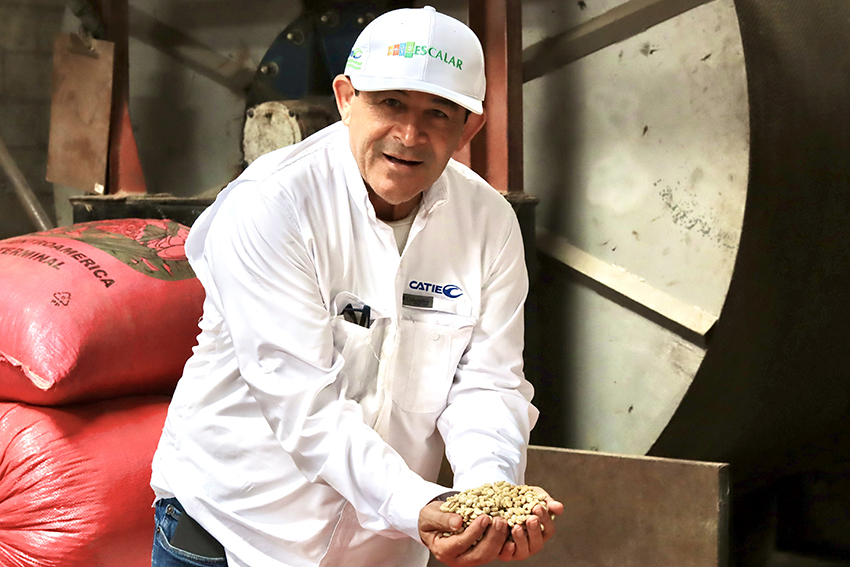
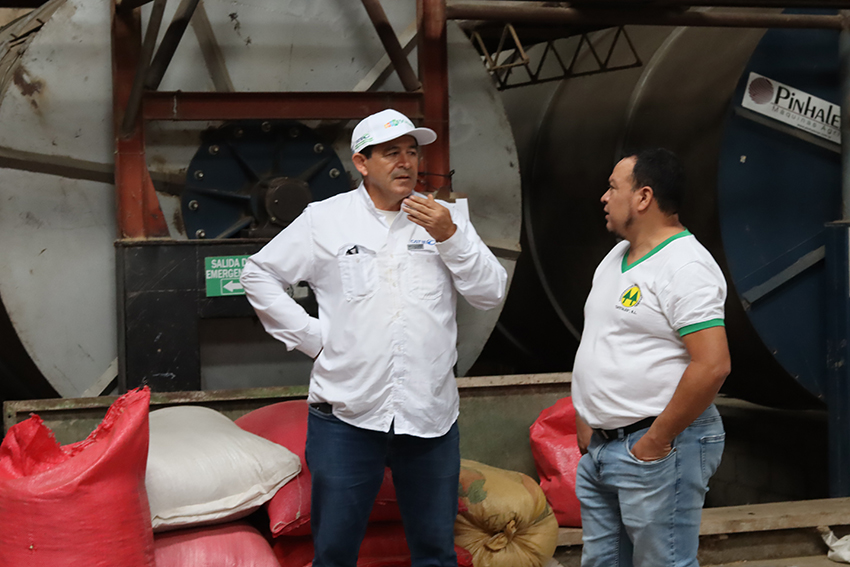
Written by:
Donaji Garcia
Specialist in Communication for Development
ESCALAR Project
CATIE
donaji.garcia@catie.ac.cr

